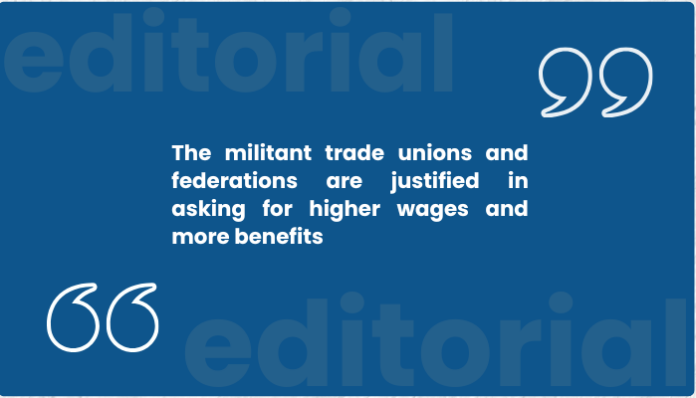AS THE government observes this year’s Labor Day with a flurry of activities, including job fairs organized by the Department of Labor and Employment to offer job opportunities to the unemployed and the underemployed, we can expect trade unions and federations, particularly the militant ones, to be out in the streets to ask for higher wages
In February, the House of Representatives approved a bill raising the daily minimum wage by P200. The House bill, according to Speaker Martin Romualdez, is “a critical step toward achieving inclusive growth and addressing the immediate challenges faced by Filipino families.”
However, as expected, the proposed P200 minimum wage hike has been opposed by at least two big groups of employers, with our workers . unable to cope with difficult economic circumstances.
Meanwhile, the Senate has yet to pass its own bill granting a P150 minimum wage hike.
The unrest among a significant section of the Filipino working class is therefore not surprising.
The ordinary factory worker who earns the minimum wage can barely support a family. Workers in public transport threaten strikes because they bring home a paltry amount owing to the continuing surge in oil prices, while workers in both the public and private sectors must invariably contend with higher prices of basic consumer goods.
Thousands of Filipinos leave the country daily to work abroad.
This tells us that the state of the economy leaves much to be desired, despite the billions collected by the government in the form of higher taxes.
The militant trade unions and federations are justified in asking for higher wages and more benefits, and the least the government should do is to allow them to ventilate their grievances.
After all, Labor Day is a day for honoring the working class and recognizing their contributions to building the national economy.
We join the rest of the nation in paying tribute to the Filipino working class for asserting their economic and political rights on Labor Day and keeping the Philippine economy afloat despite less than ideal economic and political circumstances.
The Filipino working class continues to exert efforts to improve their lot.
As Filipino workers find common cause with their counterparts in other parts of the world on May Day, they actually seek to break free from the fetters of poverty and despair, and to reclaim their dignity and pride as human beings as they struggle for a just, fair and equitable society.








